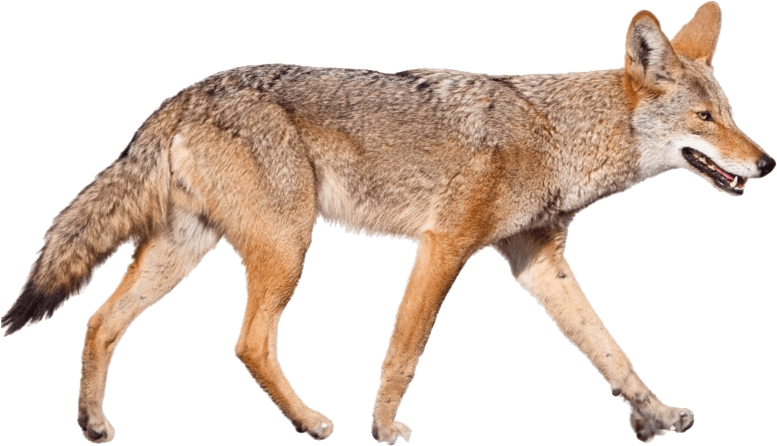Coyotes are intelligent, family-oriented, and highly adaptable, thriving in diverse environments across North America. They live in green spaces near our neighborhoods, raising their young and communicating through vocalizations. Identifiable by their large, pointed ears, bushy tails, and yellow eyes, coyotes are active year-round.
They are most visible in late winter during mating season and in spring and summer when they teach their pups survival skills. On average, six pups are born each spring, though numbers vary based on food availability. In fall, young coyotes either leave to live independently or stay with their family. Many do not survive their first year, with vehicle collisions being a leading cause of death.
Though most active between dusk and dawn, urban coyotes often adapt to daytime activity to avoid humans. They play a crucial role in maintaining ecological balance. Coexisting with coyotes is possible by understanding their behavior, reducing food opportunities, and setting clear boundaries when encountering them.

Help reduce activity close to homes
Coyotes are opportunistic omnivores, eating a wide variety of foods, from fruit and insects to rodents and even small pets. Their diet includes mice, squirrels, hares, deer, fish, eggs, and garbage, with rodents making up a significant portion. This makes them valuable for natural pest control. Managing rodent attractants on your property helps reduce food sources for coyotes and discourages them from staying near homes.
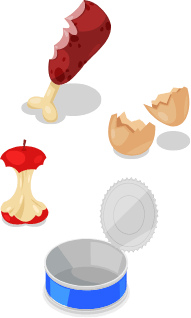
- Seeds, nuts, and suet bring a variety of wildlife into the neighbourhood. Instead, plant to encourage birds. Never intentionally feed any wildlife
- Keep garbage, organics, and recycling as odor free as possible. Keep in a secure area until morning of collection
- Pick fruit early and allow to ripen indoors. Collect fallen fruit daily and store in a secure area. If you cannot commit to managing fruit trees, please remove them
- Secure chickens and livestock
- Raise cats indoors and supervise dogs on your property
- wildlife and pets are suffering and dying from rodenticides. Remove rodent attractants or use humane methods. Never use poison!
- Secure spaces under decks/sheds and clear overgrown areas often to reduce denning opportunities on your property

Keeping Pets & Coyotes Safe
Encounters between coyotes and dogs increase in spring and summer when coyotes are raising their young. During this time, coyotes may follow you and your dog to encourage you to leave their territory. While they don’t typically see dogs as food, they do see them as a threat to their safety and family. Defensive behavior from coyotes is common, especially when pressured by off-leash dogs. To protect both pets and coyotes from injury:

- Feed pets indoors and store excess food securely inside.
- Install outdoor lighting and check your property before letting pets outside.
- Supervise off-leash dogs near your home.
- Keep dogs on a leash on trails and follow posted leash signs.
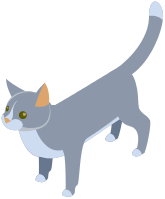
If outside between dusk and dawn, leash your dog, carry a flashlight, and consider a small airhorn if coyotes are active in your area.
Roaming cats attract coyotes, cougars, and birds of prey. While coyotes are often blamed for missing cats, studies show domestic pets make up less than 2% of their diet. Outdoor cats face higher risks from vehicles, other animals, disease, and poisoning. Raising cats indoors or providing secure outdoor spaces like catios is the best way to keep them safe.
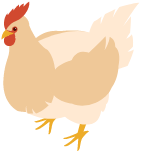
Protecting Small Pets, Chickens, and Livestock
Ensure enclosures are sturdy with heavy mesh wire and check regularly for weak spots.
- Store excess food in a secure location.
- Maintain electric fencing to deter wildlife, including bears.
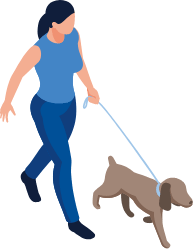
If You Encounter a Coyote
Coyotes are naturally wary of humans, and we must encourage them to stay that way by not feeding or approaching them. If a coyote is on your property or in your personal space, set boundaries:
If a coyote follows you, it may just be escorting you away from its territory. Keep your dog leashed and calmly leave.
If a coyote does not leave:
- Pick up small children and pets.
- Make yourself look big and maintain eye contact.
- Use a firm, assertive tone, clap your hands, and tell the coyote to leave.

These actions reinforce that humans are not to be approached, helping maintain safe boundaries between people and coyotes.
- Feed pets inside and store excess food indoors
- Supervise dogs closely if off-leash on your property
- Keep dogs leashed and carry bear spray and a flashlight if you are outside with your dog between dusk and dawn.
